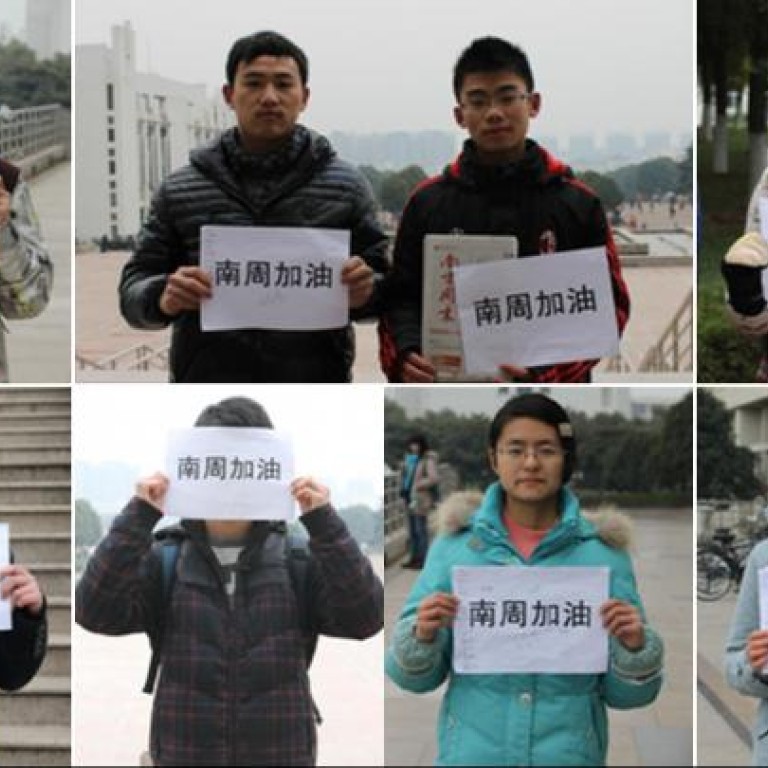
Southern Weekly censorship row escalates as staff strike, hundreds sign petition
Hundreds of mainland journalists and scholars sign petitions online to condemn lack of media freedom; some expect not much will change
Editorial staff at decided to stage a strike after a dramatic turn of events last night that aggravated a potential major crisis facing the Communist Party's new leadership.
It is the first time in more than two decades that the editorial staff of a major newspaper has openly staged a strike against government censorship.
The decision was made after the newspaper management took over the department's official microblog account, and issued a statement claiming that a controversial front-page New Year editorial had been written by its staff and was not a last-minute alteration by Guangdong propaganda officials. The management also blamed a blunder in the article on an editor.
The staff later issued a statement via another microblog denying the management's account and announced a strike. Unlike two previous open letters issued by the department, last night's statement was signed.
"The statement [on the official microblog] does not represent the opinion of the editorial staff. It is a result of pressure applied by the authorities on the … management," the department said. "The editorial staff will fight against the falsified statement … Until the issue is resolved, we will not do any editorial work."
Journalists atwhich is also sometimes called wrote on their own microblogs that the Guangdong propaganda chief they accuse of altering the New Year editorial had been holding meetings with the management yesterday. They said Tuo Zhen initially agreed to conduct a thorough investigation into the incident and promised not to take revenge against the editorial department.
"Two days after we demanded a formal investigation, the truth about what happened has not been clarified, but more and more people demanding the truth have been silenced," it said.
"The incident [involving the New Year edition] was like the fuse on a detonator," the letter said, adding that more than 1,000 stories were either censored or scrapped altogether last year.
"What we have been through was the endless routine of unjustifiable censorship, the killing of stories or entire pages and complete rewrites," it lamented.
While most mainland newspapers stayed silent on the matter following a gag order from Beijing, the Shaanxi-based published a commentary calling the row a test of the leadership's ability to govern and heed public concerns.
"The conflict between public opinions and authorities in Guangdong also underlines a pressing issue of greater importance: it is high time to review and reform our policies regarding media control," it said yesterday.

